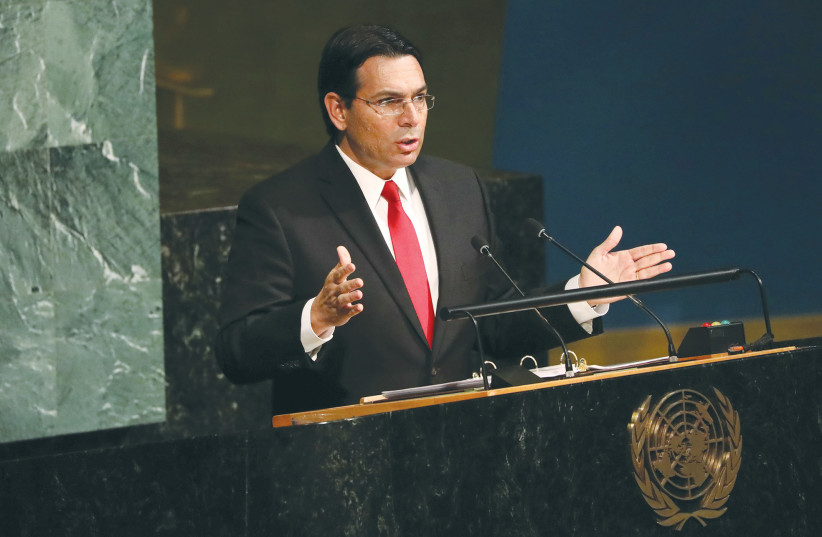The war cabinet met Wednesday night to discuss the contentious topic of the Day After plans for Gaza in the aftermath of US Secretary of State Antony Blinken’s two-day visit to Israel that ended earlier in the day.
The US and Israel have agreed that Hamas can no longer rule Gaza once the war that began on October 7 is over.
But they are at odds over issues regarding security and Palestinian statehood, with Israel wanting to retain security control. Prime Minister Benjamin Netanyahu also currently leads a government that is opposed to Palestinian statehood.
Blinken, who met with Israeli hostages and hostage-families, explained that Palestinian statehood was critical to any Day After plans, as well as to any visions of regional normalization – including a deal with Saudi Arabia.
Earlier in the day, parliamentarians Danny Danon of the Likud Party and Ram Ben Barak of the Yesh Atid party held a meeting with at least 20 representatives of countries with embassies in Israel, including some ambassadors to discuss Day After plans for Gaza.

MK Danny Danon says he has a 5 point plan for Day After in Gaza
Danon said he had a five-point Day After plan for Gaza including Palestinian demilitarization of Gaza, a security zone near the border with Israel, and the Israeli monitoring of goods through the Egyptian Rafah crossing into Israel. He also spoke of the international reconstruction of Gaza and the voluntary relocation of Palestinians from Gaza.
Blinken pointedly rejected any relocation sentiments while in Israel, and said that Netanyahu ahd assured him that this was not the government’s policy.
“We will need partners for the Day After Gaza,” Danon said, noting that he believed that many of those in the room would want to be involved in building Gaza’s future.
Ben Barak said it was “important to think together what can be done in Gaza.” Gaza belongs to the people that live there, he said, explaining that “they need to build the authority that will control the life in Gaza.
“It can’t be a terror organization. It can’t be a religious fanatic regime. It must be a civilian authority that will be supported by the international [community],” Ben Barak said.
It could be the PLO, but then it must be a [reformed] PLO that is not corrupt, or one that educates its children not to hate Israel, he added.
French Ambassador to Israel Frédéric Journès said he agreed that Gaza could not be a harbor of terrorism, but said that it is unlikely that any country or group of countries would take charge of Gaza, particularly since no one wanted to do it before.
What is likely initially, is existing Palestinian actors working together with United Nations actors, he said.
Danish Ambassador to Israel Ambassador Thomas Winkler said his government wanted to ensure Israel’s security, but also supported a two-state resolution to the conflict. He added, though, that he had no idea how one reached a situation where both these conditions were met.
